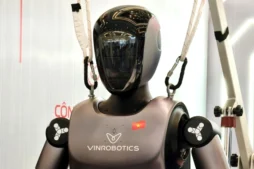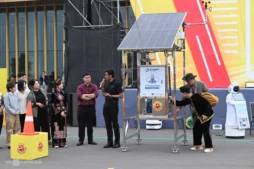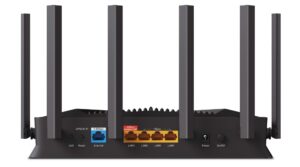Core i9-14900K, Core i7-14700K CPUs Benchmarked
Intel’s 14th Generation Raptor Lake Refresh processors will definitely fight for a spot on the list of best CPUs. It shouldn’t be long before Intel unleashes its new chips as benchmarks of the Core i9-14900K and Core i7-14700K have started to emerge.
The Core i9-14900K is a 24-core processor with 32 threads, containing eight P-cores and 16 E-cores. It serves as the direct replacement for Intel’s Core i9-13900K, the current flagship of the 13th Generation Raptor Lake lineup. On the other hand, there’s the Core i7-14700K, which will succeed the Core i7-13700K. However, the Core i7-14700K has a minor upgrade in its core configuration. Whereas the Core i7-13700K features eight P-cores and eight E-cores, the Core i7-14700K sports four additional E-cores.
Being a refresh, the Core i9-14900K and Core i7-14700K will logically have higher clock speeds than their Raptor Lake counterparts. It’s a shame that the Crossmark benchmark doesn’t show the processors’ clock speeds. If the early rumors are legit, the Core i9-14900K may have a 6-GHz boost clock, 200 MHz higher than the current Core i9-13900K but on the same level as the Core i9-13900KS.
As with any preliminary benchmarks, we recommend you throw some salt over the results. According to Crossmark, the Raptor Lake Refresh processors were inside test systems with 16GB of DDR5-4800 memory, which is an intriguing choice since Intel’s new platform seemingly supports DDR5-6400 out of the gate. Both systems also had the GeForce RTX 4090 as their discrete graphics card.
Core i9-14900K, Core i7-14700K Benchmarks
| Processor | Overall | Productivity | Creativity | Responsiveness |
|---|---|---|---|---|
| Core i9-14900K | 2,265 | 2,167 | 2,533 | 1,855 |
| Core i7-14700K | 1,980 | 1,881 | 2,268 | 1,542 |
Overall, the Core i9-14900K was up to 14% faster than the Core i7-14700K. If we look at the individual results, the former had 15%, 12%, and 20% higher productivity, creativity, and responsiveness scores. Unfortunately, that’s the extent of the comparison because the Core i9-14900K and Core i7-14700K results were significantly lower than their existing counterparts. Since the results aren’t accurate, comparing the chips to its AMD Ryzen rivals doesn’t make sense.
It’s possible that the tested chips were ES (engineering sample) or QS (qualification sample) silicon with lower clock speeds. One of the tested chips was inside an Acer PC, suggesting that it’s an OEM system, which we know nothing about, for example, the power configuration or cooling.
At any rate, we shouldn’t get our hopes up for Raptor Lake Refresh, bringing a considerable performance improvement. As per alleged Intel performance projections, the new hybrid chips may only be between 1% to 3% faster than Raptor Lake. Remember that this is a refresh and probably the last breath of air for Intel’s LGA1700 platform.
Raptor Lake Refresh rumors point to an October release. However, the announcement may come sooner. Intel has scheduled its Intel Innovation 2023 event for September 19 to 20; therefore, we could see a Raptor Lake Refresh unveiling. Intel did confirm that it’ll talk about Meteor Lake at the event, so that’s something to look forward to.















